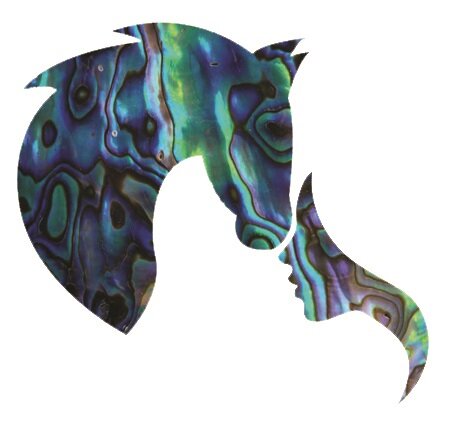Resources & Research
Resources
Gestalt Equine Institute Of The Rockies
Equine Therapy is expanding in its reach.
Gestalt Equine Psychotherapy™ is expanding in its sophistication.
Welcome to the Gestalt Equine Institute of the Rockies!
GEIR is a training institute for professionals and students in the psychotherapy, counseling, equine, nature and education fields.
Somatic Experiencing (SE)
Peter A. Levine, PhD is the creator of Somatic Experiencing (SE), a clinical method to resolve trauma symptoms. He received his PhD in medical biophysics from the University of California in Berkeley, and also holds a doctorate in psychology from International University. He has worked in the field of stress and trauma for over 40 years.
Peter received the Lifetime Achievement award from the United States Association for Body Psychotherapy (USABP) in 2010.
He is the author of best-selling books including Waking the Tiger: Healing Trauma (1997) and In an Unspoken Voice: How the Body Releases Trauma and Restores Goodness (2010). His most recent book is Trauma and Memory: Brain and Body in a Search for the Living Past (2015).
Research
Outcomes of Equine Supported Therapy
Empirical Research
Equine facilitated therapy with children and adolescents who have been sexually abused: A program evaluation study.
by Kemp, K., Signal, T., Botros, H., Taylor, N., Prentice, K. (2013).
Journal of Child and Family Studies, 23, 558-566
Eagala Model intervention for adolescents who experienced sexual abuse and trauma. Researchers found significant improvements in psychological distress and functioning after the intervention.
Animal-assisted therapy with chronic psychiatric inpatients: Equine-assisted psychotherapy and aggressive behavior.
by Nurenberg, J.R. etal (2014).
Psychiatric Services in Advance, Oct.1-7
Hospitalized psychiatric patients with violent or regressed behaviors were randomly assigned to Eagala Model equine-assisted psychotherapy, canine group, social skills group or routine hospital activities (control group). Those in the Eagala group showed the largest decrease in violent behavior.
Stress management for college students: An experiential multi-modal approach.
by Morgan, B. M. (2017).
Journal of Creativity in Mental Health, 12(3), 276-288
Quasi-experimental study comparing students who received stress management activities(experimental group) with students in a control group. Activities were carried out either with Eagala Model or another experiential modality (e.g., yoga, mindfulness, hiking).Student stress decreased from pretest to post test in the experimental group. Those receiving the Eagala Model performed as well as other modalities.
Combating compassion fatigue in community care professionals using the Eagala Model
by Black, M. (2016).
Counseling Australia, Winter, 8-13
Pilot study investigating the Eagala Model to treat compassion fatigue in community care professionals. Results showed significant decreases in compassion fatigue and burnout and increases in compassion satisfaction at post test. Emotion awareness and management also increased significantly.
Adding equine assisted psychotherapy to conventional treatment: A case study of adolescent resilience among charter high school students.
by Whittlesey-Jerome W. K., Schultz, P. N., & Tomaka, J. (2016).
Pediatrics & Therapeutics 6, (1), 1-10.
Case study comparing effects of Eagala Model group sessions and psycho-educational group sessions on resiliency in charter school students. The Eagala group showed trending improvements in mastery and relatedness over and above those found in the non equivalent control group.
Adding equine-assisted psychotherapy to conventional treatments: A pilot study exploring ways to increase adult self-efficacy among victims of interpersonal violence.
by Whittlesey-Jerome, W.K. (2014).
The Practitioner Scholar: Journal of Counseling and Professional Psychology, 3, 82-101.
Pilot study looking at adding Eagala Model EAP to existing conventional treatments for victims of interpersonal violence.The Eagala group showed greater improvement in self-efficacy,depression, and general functioning.
Equine‐assisted psychotherapy: A mental health promotion/ intervention modality for children who have experienced intra-family violence.
by Schultz, P. N., Remick‐Barlow, G., & Robbins, L. (2007).
Health& Social Care in the Community,
15(3), 265-271.
Pilot study investigating Eagala for children with mental health and behavioral issues in a one-group pretest-post test quasi-experiment. GAF scores improved from pretest to post test;improvements were positively correlated with number of Eagala sessions.
Research Illustrating Equine Supported Therapy Models
Human-animal interaction and metaphor in equine-assisted psychotherapy: Empirical support for the Eagala Model.
by Fournier, A. K., Letson, E., Berry, T. D., & Pasiuk, E. (2018).
Human-Animal Interaction. Bulletin, 6(1), 47-63.
Correlational study investigating the relationship between distress, human-horse interaction, and psychological learning.Data suggests the effect of interacting with horses on psychological learning is moderated by metaphor, providing evidence for the role of metaphor in the Eagala Model.
Equine Facilitated Therapy for Children and Adolescents: A Qualitative Pilot Study.
by McNamara, J. (2017).
Journal of Creativity in Mental Health, 12(4),412-427.
Qualitative study of Eagala practitioners. Identified needed scholarship–theoretical frame work, standardized clinical practice, parent involvement in child/adolescent work, and research on mechanisms of change.
Equine-assisted psychotherapy for adolescents experiencing depression and/or anxiety: A therapist’s perspective.
by Wilson, K., Buultjens, M., & Monfries, M. (2017).
Clinical Child Psychology and Psychiatry, 22(1), 16-33.
Qualitative study investigating facilitators’ perceptions of Eagala Model EAP for adolescents with depression or anxiety.Researchers identified themes related to the horse’s role,common outcomes, practitioner motivation, and needed evidence base.
Non- empirical scholarship
Equine assisted psychotherapy in a South African forensic setting: A descriptive report.
by Roffey, M., Garland, S., Bromfield, F. C., Abdulla, N., Hawtrey, R., Moodley, T., & Nune, N. (2018).
South African Psychiatry (17), 7-15.
Describes an Eagala Model EAP program at a forensic hospital unit.
Why we don’t ride: Equine assisted psychotherapy, military veterans and moral injury.
by Usadi, E. J., & Levine, S. A. (2017).
Journal of Trauma & Treatment, 6: 3. doi: 10.4172/2167-1222.1000374
Discusses why ground-based EAP is recommended for war veterans and others who have experienced moral injury.
Equine-assisted psychotherapy: An emerging trauma-informed intervention.
by Walker Buck, P., Bean, N., & de Marco, K. (2017).
Advances in Social Work, 18(1), 387-402.o
Describes the Eagala Model, particularly as it relates to social work and treating those affected by trauma.
Equine assisted psychotherapy: The equine assisted growth and learning association’s model overview of equine-based modalities.
by Notgrass, C. G., & Pettinelli, J. D. (2015).
Journal of Experiential Education, 38(2), 162-174.o
Introduces and describes the Eagala Model



